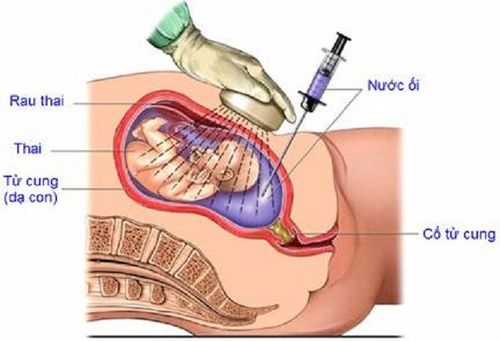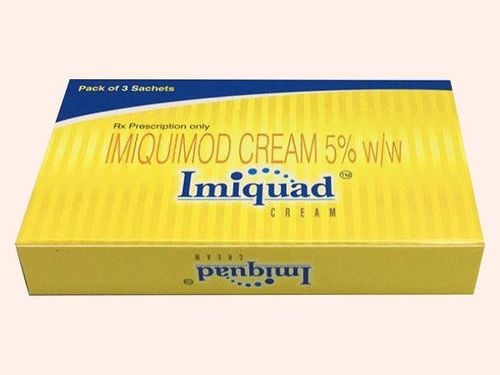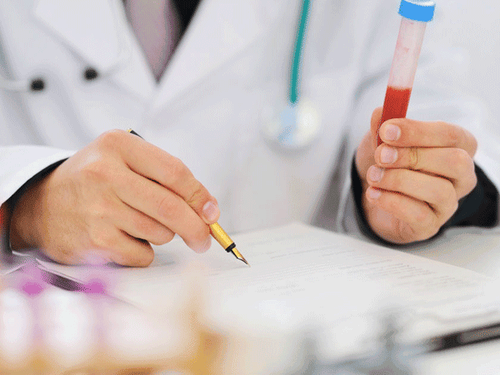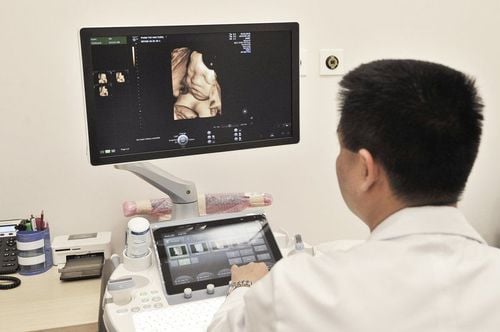This is an automatically translated article.
The article was professionally consulted with Doctor Nguyen Thi Man - Obstetrician and Gynecologist - Department of Obstetrics and Gynecology - Vinmec Danang International General Hospital.Healthy women between the ages of 35 and over 40 can still have safe pregnancies and give birth to healthy babies. However, prenatal genetic screening and prenatal genetic screening for pregnant women age 35 and older offer certain benefits.
1. Ultrasound
Any pregnant woman of any age should have an ultrasound at least once during her pregnancy. Ultrasound uses high-frequency sound waves to recreate images of the fetus, which is a completely safe method for both pregnant women and fetuses. Ultrasound is performed for many purposes such as:Confirm pregnancy for sure Determine fetal heart rate Determine single or multiple pregnancy Calculate due date as well as monitor fetal growth Check uterine condition and ovaries Locate placenta and amount of amniotic fluid Look for signs of fetal abnormalities: cleft lip, heart defects, spina bifida, Down syndrome,...
2. Screening for the first trimester of pregnancy
The first trimester screening is done between 11 and 14 weeks of pregnancy. Screening will do an ultrasound and a blood test:An ultrasound will measure the thickness of the skin on the baby's nape A blood test will measure two markers in the blood. The purpose of screening is to see if the fetus has certain genetic problems, such as Down syndrome.
The mechanism of action of this screening is the same as that of the four-marker screening mentioned below, and its accuracy is also higher than that of the four-marker screening. Sometimes another blood test can be combined to increase accuracy.

3. Screening of the four imprints
Four-marker screening is a blood test done between 15 and 20 weeks of pregnancy. It will measure several factors in the blood to detect:Defects in the brain and spinal cord of the fetus, called neural tube defects, including spina bifida and flat encephalopathy. Four-marker screening can detect 75% to 80% of neural tube defects. Genetic disorders, eg Down syndrome. This screening can detect about 75% of cases of Down syndrome in pregnant women under 35 years of age and over 80% of cases in pregnant women 35 years of age and older. It is important to remember when performing this that the four-marker screening only gives the degree of risk of fetal malformations. If the level is greater than the average for a 35-year-old woman, the screening result is positive. Screening does not directly detect abnormalities in the fetus, so even a positive result does not mean that the fetus has a defect.
If the result is positive, the doctor will order more tests, such as:
Amniocentesis to test fetal chromosomes Ultrasound to look for signs of fetal abnormalities
4. Amniocentesis
Unlike a blood test that only shows the level of risk, amniocentesis is done to directly check fetal chromosomes. To perform this procedure, the doctor inserts a needle through the peritoneal cavity under the guidance of ultrasound to remove a small amount of amniotic fluid for testing for chromosomes and genetic disorders. . Besides the common disorders such as Down syndrome, trisomy 18, trisomy 13, Turner syndrome, other disorders can be seen such as:Sickle cell disease Cystic fibrosis Dystrophy Hand-Sachs Disease Neural tube defects, such as spina bifida and encephalopathy
5. Chorionic villus Biopsy (CVS)
A chorionic villus biopsy can be performed earlier in pregnancy than amniocentesis. Like amniocentesis, a chorionic villus biopsy can detect a number of conditions. If you are at high risk, a chorionic villus biopsy will be indicated to detect fetal malformations in the early stages of pregnancy.To perform this method, a small amount of placental tissue is removed for testing. Placental tissue is part of the placenta, formed from a fertilized egg, and therefore has the same genetic composition as a fetus. To remove placental tissue for chromosomal testing, the doctor will use a needle to collect samples through the vagina or abdominal wall depending on the specific location of the placenta.
chorionic villus sampling and amniocentesis are genetic screening methods during pregnancy, before doing so, you will be consulted with a specialist about the benefits, risks, as well as thoroughly learn about genetic disorders .

6. Non-invasive prenatal tests
This new test shows if a woman is at risk of carrying a baby with a genetic disorder. Because the sample is the mother's blood, it is less invasive than a chorionic villus biopsy or amniocentesis.The test is done between 10 and 22 weeks of pregnancy. The test looks for fetal DNA in the mother's blood. The test results determine your baby's risk of having Down syndrome, trisomy 18, and trisomy 13.
Noninvasive prenatal testing can detect 99% of cases of Down syndrome and trisomy 18, as well as most cases of trisomy 13. This test is much better than other tests. other blood tests.
If the test results show a high risk of genetic disorders, the doctor will order a chorionic villus sampling or amniocentesis to confirm the diagnosis.
Vinmec International General Hospital with modern facilities, leading investment equipment in Vietnam and a team of experienced experts is implementing the Pre-pregnancy health care and counseling program.
Most Vietnamese women today are only concerned with their health and the baby after pregnancy, while preparing for pregnancy is much more important. The counseling and health check for pregnancy preparation for couples who are planning to become pregnant, for parents who have been pregnant or have had children with birth defects or problems related to pregnancy. Chronic diseases, obstetric and gynecological diseases, ... are very important and necessary to minimize the risks that may occur in the next pregnancy.
Besides genetic screening before pregnancy and genetic screening during pregnancy, Vinmec's Pre-Pregnancy Care and Counseling Program also screens for many other factors, such as pre-implantation testing (PGT). ), screening for diseases such as vaginal infections, sexually transmitted diseases (STDs), diabetes, cardiovascular diseases, etc. to prepare well for pregnancy, increase the likelihood of having a healthy baby and minimize risks during pregnancy, delivery and postpartum.
Please dial HOTLINE for more information or register for an appointment HERE. Download MyVinmec app to make appointments faster and to manage your bookings easily.
The article has reference to the source: webmd.com













